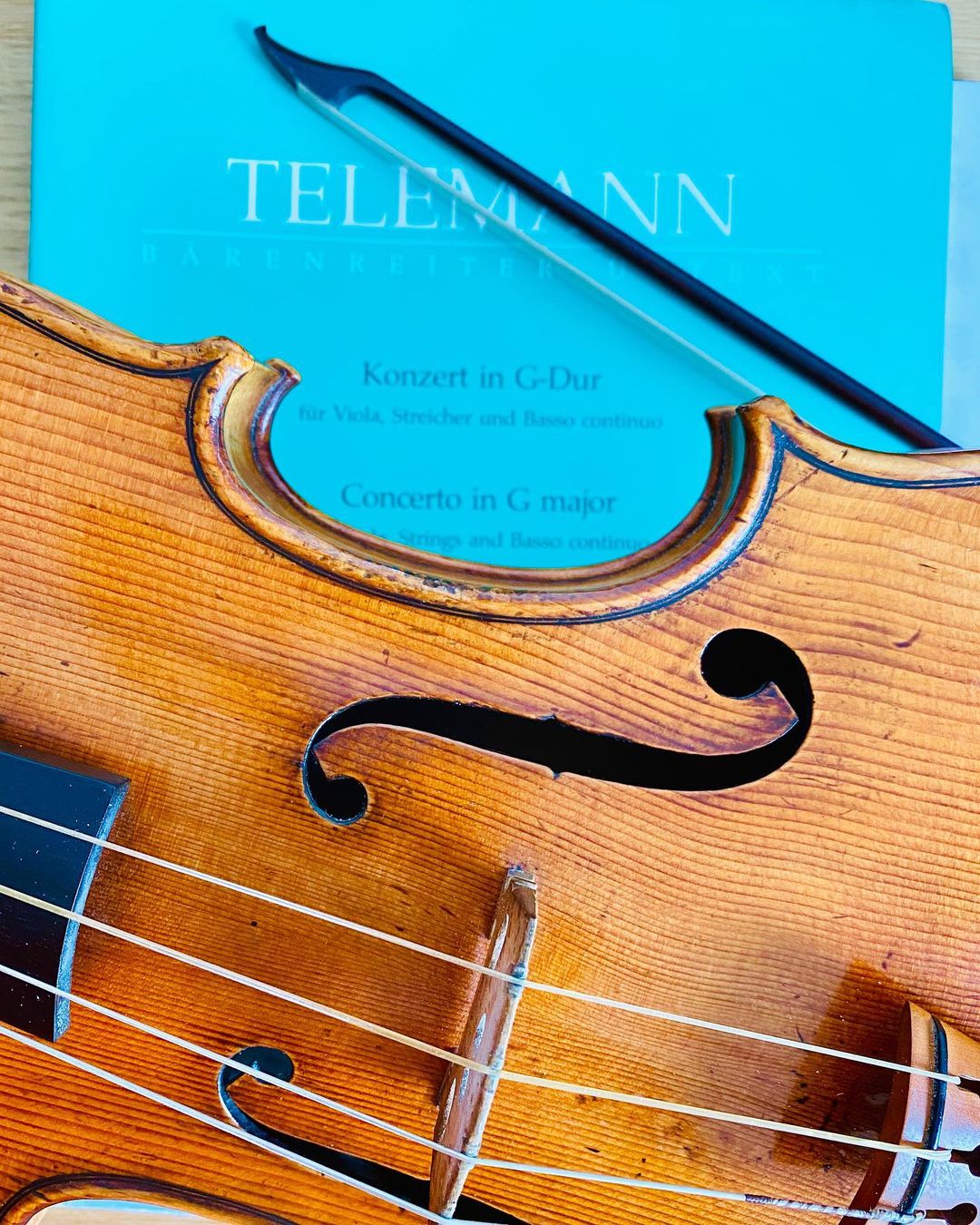
Telemann Viola Concerto
Cover credit: Antoine Tamestit, Instagram post
Georg Philipp Telemann
TL;DR from Wikipedia: Georg Philipp Telemann was a German Baroque composer. He was good friend with Bach, who was 4 years younger. A little further away in Venice there was Antonio Vivaldi, who was 3 years senior. Telemann was not born in a music family. His father died early, and his mother did not support him to pursuit a music career. He was nearly completely self-taught. Up until college he was still pursuing law, but eventually chose a career in music. He went on to become extremely prolific and in his contemporary time was considered one of the leading composers.
Another interesting read about Telemann is the autobiography he wrote for himself. In fact, he wrote three of them. He's quite brief. This one is only a few pages long. He talked about his major life events, and listed out pieces he wrote, or gave a number if he'd written too many.
Telemann was also a printer. He started a printing business and published music for himself and his friends such as Bach and Handel. At the beginning of his entrepreneurship, he did everything by himself, including engraving the types and marketing!
Viola Concerto, TWV 51:G9
This concerto is the first viola concerto we know now. String instruments were made to double the singers, where violins doubling the soprano, and violas doubling the alto and tenor . I guess that's why most concertos were written for violins and why violas aren't really a solo instrument "traditionally". However, Telemann strikes to me as someone who would completely go about to write a concerto for it. He probably didn't grow up with too much teaching on what he's supposed to do with music. When he started take formal music lessons, he was already old enough to have his own critical thinking. Given how he also went up for a music career despite disapproval from his family, I'll argue that he was the composer you'd go for to find a viola concerto of his time.
Georg Philipp Telemann, with his 900 or so works, is said to be the most prolific composer of all time and was considerably more famous in the early 1700s than J.S. Bach. He also had a better job, as cantor of the major churches in Hamburg. His career and Bach’s intersected a number of times, and Telemann stood as godfather to C.P.E. Bach.
The famous Viola Concerto, the first for that instrument, is one of nearly 200 Telemann composed while serving in Frankfurt as city music director (1712–21). There he was an officer for the upper-middle-class Frauenstein Association, which sponsored “weekly great concertos” of its collegium musicum: in short, an early philharmonic society, giving a subscription series of orchestra concerts.
The concerto is in four movements, not the three that came to be standard, thus following the model of the church sonata by Torelli and others. The Largo and Allegro form an opening-movement pair, followed by a discursive slow movement with unusual harmonic twists, and concluding with a binary dance-like movement. Professor Wolff notes “the stamp of Telemann’s personal artistry, his gay and pleasant amiability, his understanding of the instrument in question and its tonal character.” Note the interesting deployment of the bass line, sometimes participating in the imitative polyphony, sometimes taken by violins and violas in unison, and occasionally falling out altogether. Here the basso continuo is anything but continuous.
A bit more context from Telemann's personal life, the piece was written in the later half of his stay in Frankfurt, so late 1710's, and he in late thirties. His first wife had died and he remarried. His second marriage caused troubles later on but by the time this piece was written, he was probably having a prosperous life, the number of kids said it. Anyway, I do hear a little bit of sorrow even though it's in a major key. I'm curious to know what topics Telemann had in mind when he composed it but I have no clue.
Personal interpretation
Newton comes in a lecture hall, and speaks about why apples and objects would fall onto the ground. Audience asks questions, and Newton said he'd come back with an answer.
Newton then goes home and works hard to try to find an answer. There are many ah-ha moments, but a true answer was still pending in the air.
With a bit of sorrow he came back with another lecture, without answering "the big question". The audience was really nice and curious, encouraging Newton to carry on with his studies.
Newton finally found the answer and published his work. It was a great theory. Celebrations and recognitions last all the way to our time.
References
- Preface of Telemann's 12 Fantasias for Viola da Gamba by Publisher
- The Works for Viola da Gambain the Ledenburg Collection
Paper describing the discovery process of the Ledenburg Collection from the Ledenburg Castle, suggesting a household with a Viola da Gamba aficionado and a knowledgeable collection of the music for this instrument. - History of the Viola - Viola in Music
- Georg Philipp Telemann (Wikipedia)